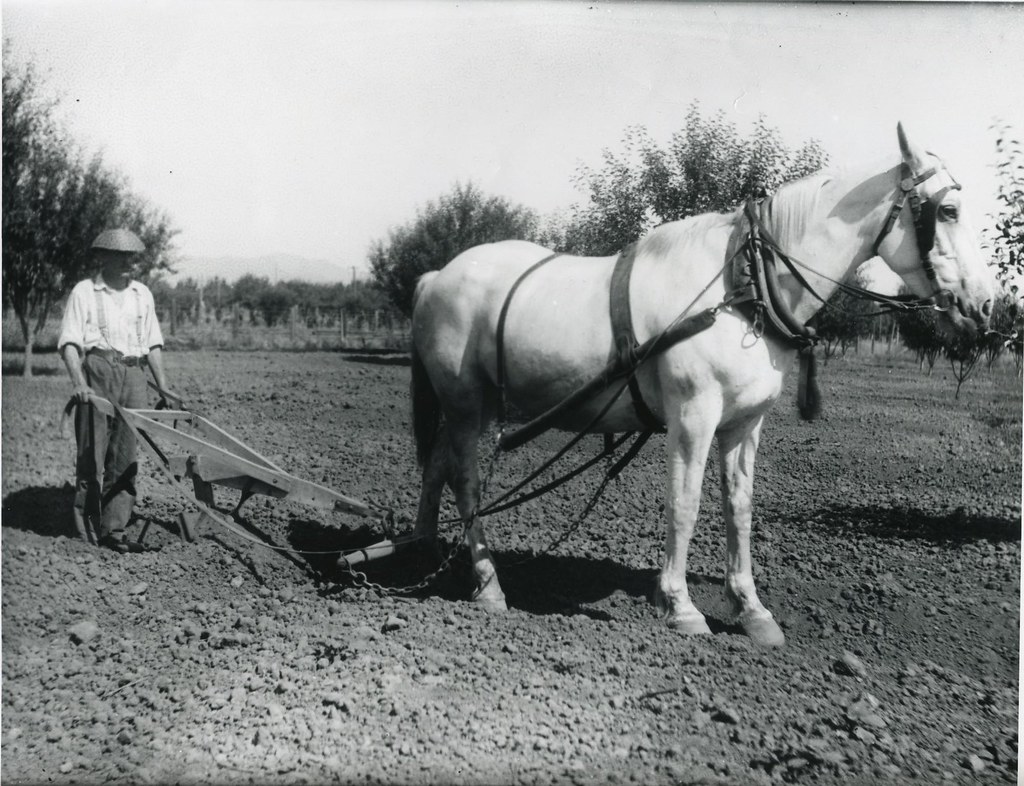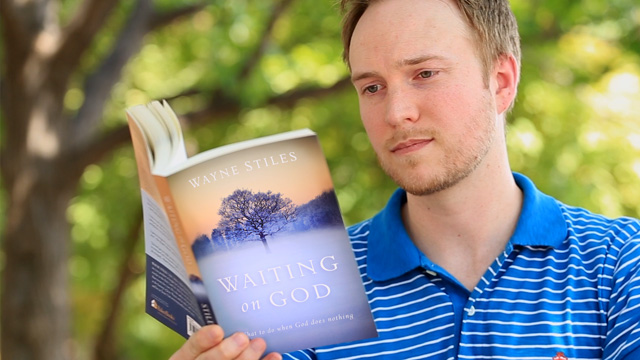“ Fear not [there is nothing to fear], for I am with you; do not look around you in terror and be dismayed, for I AM your God. I will strengthen and harden you to difficulties, yes, I will help you; yes, I will hold you up and retain you with My [victorious] right hand of rightness and justice.” (Isaiah 41:10, AMPC)
Review of Parts One and Two: In Part One we talked about diligent Bible study and meditation and the historical context of Isaiah. We surveyed Isaiah 40 and 41, which show what happened to Israel when they were taken captive by the enemy of our souls, led to idol worship and, because of that, were taken into exile. They were taken out of the location where God’s promises were fulfilled. They were taken out of Jerusalem, the focal point of the land God had put them in and sustained them in when they obeyed and served Him. We highlighted the main threads of thoughts in Isaiah 40 and 41, setting the stage for a deeper look at Isaiah 41:10, which is one of God’s sure cures for loneliness and fear.
In Part Two, we saw that God understands fear and He has a sure cure for loneliness and fear, no matter the circumstances because God is Creator and King over all that is, ever has been, and ever will be. Keeping our mind on Him and recalling Who He is and what He is like brings peace. This works even though we are surely living in the terrible times described in 2 Timothy 3:1-9. Now, more than ever in our lifetimes, people are
“lovers of themselves, lovers of money, boastful, proud, abusive, disobedient to their parents, ungrateful, unholy, without love, unforgiving, slanderous, without self-control, brutal, not lovers of the good, treacherous, rash, conceited, lovers of pleasure rather than lovers of God—having a form of godliness but denying its power. Have nothing to do with such people.” (NIV)
How to live in the present darkness of our world. Paul’s next words tell Timothy how he is to live in this kind of climate, which is to continue in Paul’s teaching and study the Word. Why? Because “All Scripture is God-breathed and useful for teaching, rebuking, correcting and training in righteousness, so that the servant of God may be thoroughly equipped for every good work. (2 Timothy 3:16, NIV). That last phrase “so that servant of God may be thoroughly equipped for every good work” reflects the message in Psalm 1. Psalm 1 promises blessings if we do not live like the evil and wicked ones around us but rather live righteously and keep our minds on and follow the Word.
Another passage with the same idea is Psalm 37, which says do not fret about the wicked things and people around us. Rather, God says we to “Trust (lean on, rely on, and be confident) in the Lord and do good; so shall you dwell in the land and feed surely on His faithfulness, and truly you shall be fed (Psalm 37:3, AMPC). Notice: God says if we whole-heartedly trust God and do good we will live in the land and feed on His faithfulness. God says “truly you shall be fed.” Pondering all of Psalm 37 is a great weapon to use against fear and panic that desperate situations can bring, situations like the current condition of our nation.
The second half of Isaiah 41:10. Recall the context of Isaiah 41 and recall that in Isaiah 41:10 God tells His exiled people: “Fear not [there is nothing to fear], for I am with you; do not look around you in terror and be dismayed, for I am your God. I will strengthen and harden you to difficulties; Yes, I will help you; Yes, I will hold you up and retain you with My [victorious] right hand of rightness and justice.” (AMPC).
Look at the promises God gives in Part B.
- I will strengthen you and harden you to difficulties;
- Yes, I will help you;
- Yes, I will hold you up
- And retain you
- With My [victorious] right hand of rightness and justice.
Let’s consider each of these promises.
“I will strengthen you and harden you to difficulties.” The Word abounds with promises of God’s strength for His obedient children. One of the most often-quoted verses is Isaiah 40:31, which is in the same context as 41:10.
“But those who hope in the Lord will renew their strength. They will soar on wings like eagles; they will run and not grow weary, they will walk and not be faint.” (NIV)
Notice the condition in Part A of this verse which we must meet if we want the promises in Part B – we must hope in the Lord.
“But those who wait for the Lord [who expect, look for, and hope in Him] shall change and renew their strength and power; they shall lift their wings and mount up [close to God] as eagles [mount up to the sun]; they shall run and not be weary, they shall walk and not faint or become tired.” (AMPC)
Think of times in Scripture when the enemy attacks the hope of God’s people, times when there seems no way out and Satan tempts them to give up, or as Job’s wife put it “Curse God and die.” (Job 2:9, NIV). Think of Israel at the Red Sea, Elijah after Jezebel threatens his life, Jonah after his shading vine withered, Nehemiah who rebuilt the walls of Jerusalem and Ezra who restored worship. All faced direct attacks on their hope. And the enemy uses the same attack today. We must know the Word and use it, for in the Word we have God’s promises of help and deliverance and a multitude of stories of deliverance in the face of impossible odds.
We can have God’s strength IF we believe in Him, adhere to Him, trust and rely on Him. We must exercise our faith as did our spiritual ancestor Abraham “[For Abraham, human reason for] hope being gone, hoped in faith that he should become the father of many nations, as he has been promised, So [numberless] shall your descendants be.” (Romans 4:18, AMPC)
Study and meditate on verses about strength. Ponder—and believe–Deuteronomy 33:15 where God promises “As the days, so shall your strength be” (NKJV)
“. . . and harden you to difficulties.” The hardening in the second half of this phrase is a good thing because God is saying He will change us so that we can endure hardships with grace and peace. As we obey Him and seek to grow, He will help us become more like Paul so that, we too, can say: “We are hard pressed on every side, but not crushed; perplexed, but not in despair; persecuted, but not abandoned; struck down but not destroyed.” (2 Corinthians 4:8-9, NIV.) God will equip us to not lose heart so that we, as did Paul, will know
“. . . though outwardly we are wasting away, yet inwardly, we are being renewed day by day. For our light and momentary troubles are achieving for us an eternal glory that far outweighs them all. So, we fix our eyes not on what is seen, but on what is unseen, since what is seen is temporary, but what is unseen is eternal. (2 Corinthians 4:16b-18, NIV)
Arming ourselves with the right attitude toward troubles. The right attitude, like Paul had, is armor for our mind. Consider First Peter 4:1:
So, since Christ suffered in the flesh for us, for you, arm yourselves with the same thought and purpose [patiently to suffer rather than fail to please God]. For whoever has suffered in the flesh [having the mind of Christ] is done with [intentional] sin [has stopped pleasing himself and the world, and pleases God]. (AMPC)
 Getting that right attitude. How do we get this attitude, so that we have the same mind, or attitude, that was in Christ and which Paul had acquired? Paul tells us in Philippians 2:1-13. Pause and prayerfully consider that passage now.
Getting that right attitude. How do we get this attitude, so that we have the same mind, or attitude, that was in Christ and which Paul had acquired? Paul tells us in Philippians 2:1-13. Pause and prayerfully consider that passage now.
In Philippians 2, Paul says we are to make God glad by considering others (not just ourselves) and by imitating the humility of Christ. Just as Christ humbled Himself and carried his obedience to the extreme, so are we to carry our obedience to God to the extreme, with whole-hearted fervor, holding nothing back. Part of that is completing our salvation, working it out, realizing that it is God who is working in us and that He will give us His strength.
For it is [not your strength] but it is God who is effectively at work in you, both to will and to work [that is, strengthening, energizing, and creating in you the longing and the ability to fulfill your purpose] for His good pleasure (Philippians 2:13, AMPC)
<<When we are exiled, for any reason, we are to keep on obeying and serving God—to the extreme—and we are to press on to even more maturity right in the midst of hard circumstances.>>
Mediate on these passages about the process of maturity and the right attitude toward trials: James 1:1-16, 2 Peter 1:5-10, Romans 5:1-5. As you do so, keep in mind that God promises He will ‘harden us to difficulties.” Does God ever, ever, ever lie? Does God ever, ever, ever have favorites? That means God will change you so that you can bear up under trials.
“Blessed (happy, fortunate, to be envied) is the man whom You discipline and instruct, O Lord, and teach out of Your law, that You may give him power to keep himself calm in the days of adversity, until the [inevitable] pit of corruption is dug for the wicked. (Psalm 94:12-13, AMPC)
“Yes, I will help you.” Recall again that Isaiah 40 thru 56 are promises of divine deliverance for Israel. Reread Isaiah 40, where God tenderly comforts His people, reassuring them of His omnipotence and pleading with them to remember what they have been told: that if they wait, expect, look for and hope in Him, He will give them strength, like an eagle’s. He will help them. And consider Isaiah 41. God repeats “I will help you” three times (verses 10, 13 and 14) and the entire chapter gives details of how He will help them.
Think about what help means. To help is “to give assistance or support to (someone): to provide someone with something that is useful or necessary to achieving an end”. Also, “to make more pleasant or bearable”, to improve or relieve. Also “to change for the better” and “to keep from recurring.” (Webster’s 1828 online dictionary).
Help is one of the things God promised when He commissioned Joshua to lead Israel into the Promised Land. (See Joshua 1:1-9) God told Joshua the Promised Land was already his, that no one would be able to stand against him, that God would be with him as He was with Moses, but Joshua was to be strong and very courageous, he was to do all that God had commanded through Moses and he was to meditate on the Word day and night. God ends His charge to Joshua by saying, “Have I not commanded you? Be strong and courageous! Do not be terrified or dismayed (intimidated), for the LORD your God is with you wherever you go.” (AMPC). Notice why God told Joshua not to be afraid—because God promised He would be with Joshua – everywhere he went!
The writer of Hebrews 13:5 (believed to be Paul) refers to this same promise of never-failing Divine help. Paul says we must learn to be content with what we have because God has promised help. Listen to how detailed God is about the help He promises:
For He [God] Himself has said, I will not in any way fail you nor give you up nor leave you without support. [I will] not, [I will] not, [I will] not in any degree leave you helpless nor forsake you nor let [you] down (relax My hold on you)! Assuredly not!” (Hebrews 13:5b, AMPC)
That means that in every situation, in every aspect of every situation, God will support, help, and be with us. Know that, hold that in your heart, and keep standing in faith. With that verse in mind, we can do like Paul says in verse 6. “So, we take comfort and are encouraged and confidently and boldly say, The Lord is my Helper, I will not be seized with alarm. [I will not fear or dread or be terrified]. What can man do to me? “
One final thought about the phrase “Yes, I will help you.” Can you hear that God is aware of our doubt? Imagine a father, who, having told his seven-year old daughter she can stay up late responds to her quizzical expression with “Yes, you can stay up late.” God is telling us, YES, I will help you. He will make your life more pleasant and bearable. He will help you, yes you!
“Yes, I will hold you up and retain you. . . ” Notice that God uses the same sentence structure for this next phrase. He wants to convince us that He will hold us up and that He will retain us which means to “keep something in place.” The phrase “to hold up” implies that the one being held is about to fall. God says of the righteous that “Though he falls, he shall not be utterly cast down, for the Lord grasps his hand in support and upholds him.” (Psalm 37:24). Can you see a baby learning to walk, holding on to his parent’s hand? Does that parent ever let go and let that baby fall to the ground?
In Psalm 139, David tells God he knows that God is with him always and understands his every thought. In verse 9 David says to God: “If I rise on the wings of dawn, if I settle on the far side of the sea, even there your hand will guide me, your right hand will hold me fast.” (NIV) In speaking of a time when his feet had almost slipped, another psalmist—Asaph—said that even when he was embittered, senseless and arrogant “Nevertheless I am continually with You; You do hold my right hand.”
Even when we lack strength to go on, when we cannot find our right attitude, God still holds us. “He tends His flock like a shepherd. He gathers the lambs in His arms and carries them close to His heart.’ (Isaiah 40:11, NIV). His promise to carry us is forever. God says “Even to your old age I am He, and even to hair white with age will I carry you. I have made, and I will bear; yes, I will carry and will save you.” (Isaiah 46:4, AMPC). And how will this wonderful One help and hold us up and retain us? With His righteousness.
“with My [victorious] right hand of rightness and justice.” (AMPC) The KJV says “with the right hand of My righteousness.” Righteous means “acting in accord with divine or moral law: free from guilt or sin” (Webster’s 1828 online dictionary). In proclaiming the name, or explaining the nature of God, Moses says ‘He is the Rock, His works are perfect, and all His ways are just. A faithful God Who does no wrong, upright and just is He.” (Deuteronomy 32:4, NIV) And what is justice? Justice means “being what is merited” or “deserved”. In a word, justice mean fairness. Although God is exceedingly merciful (Psalm 145:8) He is also just and fair, which means we get what we deserve.
Consider these verses.
- Romans 2:7-8: “To those who by persistence in doing good seek glory, honor and immortality, He will give eternal life. But for those who are self-seeking and who reject the truth and follow evil, there will be wrath and anger. (NIV)
- I Peter 4:7-8 “For the time [has arrived] for judgement to begin with the household of God; and if it begins with us, what will [be] the end of those who do not respect or believe or obey the good news (the Gospel) of God? And if the righteous are barely saved, what will become of the godless and the wicked?” (AMPC)
The Word is filled with promises that those in right-standing with God will be rewarded according to their deeds—with eternal life and eternal blessings beyond what we can imagine now and after this earthly life. The Word is also filled with promises that the wicked will be judged according to their deeds, here on earth and for all eternity. “If the righteous receive their due on earth, how much more the ungodly and the sinner!” (Proverbs 11:31, NIV).
Stand strong in your faith! God will judge the evil and wicked people who are now freely strutting about because “what is vile is honored by the human race.” (Psalm 12:7, NIV). Do not listen to the enemy’s whispers that things will continue to get worse. God is already judging the wicked and exposing what they have been doing. But you will not hear about that if you listen to mainstream media. Start listening to Victory News and Flashpoint, read the praying citizen and the Mario Murillo blogs. Check out the “What is God doing?” page on this website for more resources and use them!
If you are not already, get in the fight! Do not let the enemy lie to you that your prayers for our nation and our world do not matter! They do! Get informed and do something! Write or email your government representatives, speak the truth of what is happening to those you know, ask God what else you can do, and pray, pray, pray with faith! The greatest awakening in human history is starting to unfold, and we must stand strong and take our place in the battle.
“Let not your heart be troubled! (John 14:1) Do not get discouraged when, besides the things we see in the world, you have personal trials! Dust yourself off, encourage yourself in the Lord like David consistently did and get back in the fight! We win because the battle is the Lord’s and God NEVER, NO NEVER, NO NEVER FAILS!! Do not neglect this privilege of joining with the heavenly hosts and God Himself to fight against evil. Gird up your loins, take up your weapons, strengthen your weak arms and knees, and after you have done everything – keep standing. Sound the alarm on God’s holy mountain and say with me, “Let God arise and His enemies be scattered! (Psalm 68:1)
The God Whose we are and Whom we serve is the same God who threw the horse and rider into the sea, closed the mouth of lions, kept His children through the fire, opened prison doors, and turned the world upside down with a handful of people filled with holy fire. This is our God!
This is the One whom the devil once defied and mocked through Goliath. And what did God’s servant David say to Goliath?
(45) “You are coming to fight against me with a sword, a spear and a javelin. But I’m coming against you in the name of the Lord Who rules over all. He is the God of the armies of Israel. He’s the one you have dared to fight against.
(46) This day the Lord will give me the victory over you. I’ll strike you down. I’ll cut your head off. This day I’ll feed the bodies of the Philistine army to the birds and wild animals. Then the whole world will know there is a God in Israel.
(47) The Lord doesn’t rescue people by using a sword or a spear. And everyone here will know it. The battle belongs to the Lord. He will hand all of you over to us.” (I Samuel 17:45-47, NIV) (emphasis added)
And God did exactly that through a young, unknown, outwardly unimpressive shepherd. Many today have listened to the taunts of Satan and have backed down and stopped fighting. Let us not be among those who shrink back and displease God (Hebrews 10:38). Rather, as we fight, let us take courage and let our hearts be stout and enduring!
“Wait and hope for and expect the Lord; be brave and of good courage and let your heart be stout and enduring. Yes, wait for the Lord!” (Psalm 27:14, NIV)
Listen! Do you hear the shofar? Join the fight and keep fighting! God is with you and He will help you. Yes, He will help you! He will never, no never, no never forsake you, or leave you without help – never, no never, no never! Most assuredly not!
When the Israelites rebuilding the walls of Jerusalem faced great opposition from their enemies, Nehemiah told them:
Do not be afraid of the enemy; [earnestly] remember the Lord and imprint Him [on your minds], great and terrible, and [take from Him courage to] fight for your brethren, your sons, your daughters, your wives, and your homes.” (Nehemiah 4:14, AMPC) (Emphasis added)
Do whatever it takes to get this truth imprinted on your mind and engraved in your heart:
God HIMSELF is with you, and because of that – there is NOTHING to fear!
“ Fear not [there is nothing to fear], for I am with you; do not look around you in terror and be dismayed, for I AM your God. I will strengthen and harden you to difficulties, yes, I will help you; yes, I will hold you up and retain you with My [victorious] right hand of rightness and justice.” (Isaiah 41:10, AMPC)
![You Gave Me Love [When Nobody Gave Me A Prayer]](https://m.media-amazon.com/images/I/81w0O9iEICL._AC_UY218_.jpg) “You gave me laughter, after I cried all my tears.
“You gave me laughter, after I cried all my tears. God’s sure cure for fear and loneliness. Isaiah 41:10 is one of God’s many healing balms for fear and one of the verses I meditate upon often. I cling to the truths in this verse whenever the enemy tries to cause fear or loneliness. Isaiah 41:10 teaches us how and why we can trust this One, this Sweet and beautiful One who gives us His very own love and laughter, this One Who hears our dreams and wants us—wonder of wonders—to look into His eyes and see the tenderness there. This great and loving One does not want us in loneliness or fear.
God’s sure cure for fear and loneliness. Isaiah 41:10 is one of God’s many healing balms for fear and one of the verses I meditate upon often. I cling to the truths in this verse whenever the enemy tries to cause fear or loneliness. Isaiah 41:10 teaches us how and why we can trust this One, this Sweet and beautiful One who gives us His very own love and laughter, this One Who hears our dreams and wants us—wonder of wonders—to look into His eyes and see the tenderness there. This great and loving One does not want us in loneliness or fear./caucasian-mother-comforting-crying-baby-son-740522189-5a202591c7822d001aec35bf.jpg) The power of presence. Why does the presence of someone who loves us stop fear? Because, in their presence, we perceive their care and concern. We stop feeling alone. We know we will be helped. Why? Because that particular person has helped us before. Crying infants cannot, of course, say they are afraid and they cannot say they need their parent. They do not have to. Even before a feeding or diaper change, the mere presence of the parent and being held calm the infant at a visceral, instinctive level.
The power of presence. Why does the presence of someone who loves us stop fear? Because, in their presence, we perceive their care and concern. We stop feeling alone. We know we will be helped. Why? Because that particular person has helped us before. Crying infants cannot, of course, say they are afraid and they cannot say they need their parent. They do not have to. Even before a feeding or diaper change, the mere presence of the parent and being held calm the infant at a visceral, instinctive level. When a loving parent hugs a small child, fear stops because the child is viscerally aware that the one who has taken care of its every need is touchably there. That child’s world becomes safe because the parent IS that child’s world.
When a loving parent hugs a small child, fear stops because the child is viscerally aware that the one who has taken care of its every need is touchably there. That child’s world becomes safe because the parent IS that child’s world. People who honor and work for anything or anyone but the One True God, are rightly filled with terror in hard times because what they are depending upon will fail. God repeatedly warns to worship and serve Him alone, and He warns of the consequences of trusting idols. When we break God’s laws, we get the consequences.
People who honor and work for anything or anyone but the One True God, are rightly filled with terror in hard times because what they are depending upon will fail. God repeatedly warns to worship and serve Him alone, and He warns of the consequences of trusting idols. When we break God’s laws, we get the consequences.
 In Isaiah 40, God says “Comfort My people tenderly, telling them help is coming. Tell them that, although man is ‘as frail as grass’, that My Word stands forever. Tell everyone God will deliver.” God pleads tenderly with His children to understand and trust and not fear. God reminds them that He alone—all by Himself—created heaven and earth and that all the nations are like a drop of water, or “small dust”, to Him, so how can we compare anything to God? God says ‘Can’t you tell that idols are mere things made by man? Haven’t you yet (despite all My teaching) understood that I alone rule heaven and earth and that I remove leaders as easily as wind blows away stubble?”
In Isaiah 40, God says “Comfort My people tenderly, telling them help is coming. Tell them that, although man is ‘as frail as grass’, that My Word stands forever. Tell everyone God will deliver.” God pleads tenderly with His children to understand and trust and not fear. God reminds them that He alone—all by Himself—created heaven and earth and that all the nations are like a drop of water, or “small dust”, to Him, so how can we compare anything to God? God says ‘Can’t you tell that idols are mere things made by man? Haven’t you yet (despite all My teaching) understood that I alone rule heaven and earth and that I remove leaders as easily as wind blows away stubble?” Part Two: In Part Two, we will look in detail at Isaiah 41:10. Until then, ponder Isaiah 40 and 41. Summarize what you hear God saying in these chapters. I pray He speaks comfort and fresh hope and deliverance to you about areas in your life where the enemy of our souls has taken you or those around you “captive to do his will.” (2 Timothy 2:26, NIV)
Part Two: In Part Two, we will look in detail at Isaiah 41:10. Until then, ponder Isaiah 40 and 41. Summarize what you hear God saying in these chapters. I pray He speaks comfort and fresh hope and deliverance to you about areas in your life where the enemy of our souls has taken you or those around you “captive to do his will.” (2 Timothy 2:26, NIV)
 The horse pulls the plow that tills the ground so its master can plant seed for hay that will feed the horse. Even so, as we submit to our Master’s yoke, He guides us so that our work turns out for our own benefit.
The horse pulls the plow that tills the ground so its master can plant seed for hay that will feed the horse. Even so, as we submit to our Master’s yoke, He guides us so that our work turns out for our own benefit. Our God will be compassionate-verse 32. This verse shows clearly that sometimes God does “cause grief” but the word “yet” is an essential part of the truth in this verse. “Yet” can mean at a later time, in addition to what has been said” or “in spite of that” (
Our God will be compassionate-verse 32. This verse shows clearly that sometimes God does “cause grief” but the word “yet” is an essential part of the truth in this verse. “Yet” can mean at a later time, in addition to what has been said” or “in spite of that” (